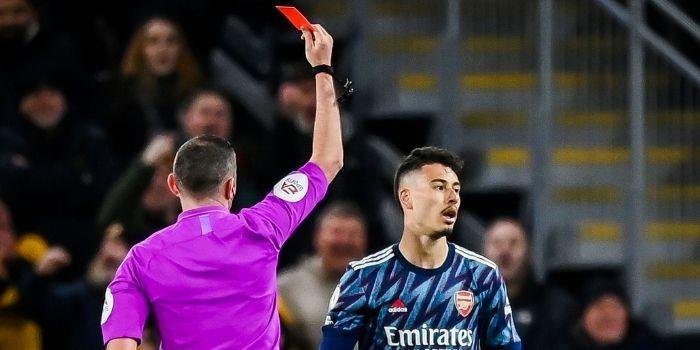Refereeing Standards & Premier League Bias Accusations

I think we can all agree that refereeing standards in the Premier League has always been shrouded controversy as far back as we can remember, and it was due to these controversies that led to the introduction of the Video Assistant Referee (VAR) system, which has also led to new controversies. This season and even previous seasons, these debates have not in any way subsided as clubs, managers, and fans continue to voice their frustrations over very controversial decisions that have influenced the outcomes of matches. The primary issues revolve around what some perceive as preferential treatment for certain clubs, inconsistencies in VAR interventions, controversial red card decisions (especially against arsenal, because yes, I’m an Arsenal fan).
Significant allegations have always been that referees tend to favor the so-called “Big Six” (except Arsenal). Supporters of mid-table and relegation threatened clubs frequently claim that referees hesitate to penalize high profile players, while their teams suffer from harsher rulings for similar incidents.
The introduction of VAR was supposed to eliminate clear and obvious errors, yet it has arguably in its own way compounded the controversy surrounding refereeing. The system has been criticized for its inconsistent application (especially against Arsenal), with some referees intervening in seemingly minor incidents while allowing other, more obvious mistakes to stand. This season has seen numerous disputed VAR decisions, particularly in relation to kicking the ball after a stoppage (interpreted as time wasting), which leads to a yellow card, which has not been implemented in all situations.
The issue of poor refereeing is not a recent issue, some may remember has led to comparisons with the infamous “Fergie Time” era, where Sir Alex Ferguson’s teams were often seen as benefitting from unusually long periods of stoppage time when chasing a result. While the Premier League insists that all added time is calculated fairly, these instances have only fueled speculation about the influence of big clubs on officiating decisions, also the Van persie red card in the Barca vs Arsenal champions’ league match.

source
The backlash against refereeing decisions has reached a point where clubs and managers are openly challenging the Professional Game Match Officials Limited (PGMOL), the body responsible for referees in English football. Wolves, for example, have called for the complete abolition of VAR, arguing that it has done more harm than good by creating unnecessary confusion and slowing down the flow of the game. Meanwhile, Mikel Arteta has also been one of the most vocal critics of officiating this season, labeling a disallowed goal against Newcastle as an “absolute disgrace.” Such strong words from my manager highlight the level of frustration that exists within the league regarding refereeing decisions and he was punished for being so daring as to challenge the authorities.
 source
source
To address these concerns, some have proposed potential reforms to improve refereeing standards. One of the most widely supported ideas is making referees publicly accountable by requiring them to explain their decisions after matches. In sports like NBA I think if I’m not mistaken the team can challenge for a perceived foul or a wrong call as the case my be. Implementing a similar system in football could help eliminate some of the confusion and frustration surrounding controversial decisions.
But of course despite the controversies, the Premier League remains one of the most competitive and widely watched leagues in the world. However, the ongoing disputes over refereeing standards threaten to undermine its credibility and of course, the momentum against poor referring is bad because poor refereeing decisions is often a plus or an advantage to the other team benefiting and so such teams benefitting do not voice out against such decisions if the poor decision is to their favor.
The video-assisting refereeing system is very helpful and most matches help the referee to decisions, but they are very bad at decision making